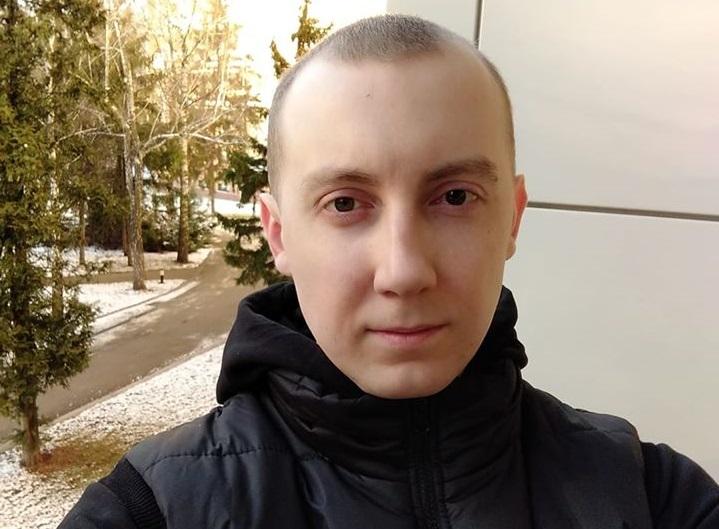
Stanislav Aseiev: Donbas is disappointed and embittered over not becoming part of Russia. But this doesn't add any love to Ukraine
Journalist Stanislav Aseiev spent more than two years in captivity in the occupied Donetsk, most of the time – in a modern-day concentration camp, a special prison called "Izoliatsia". In an interview with UNIAN, he told about the "Russian world" idea and how this "world" looks from the inside.
Journalist Stanislav Aseiev is a former prisoner of the Donetsk concentration camp Russians set up in Donbas. Stas has a unique quality of being able to remain absolutely calm while talking about terrible things. His main conclusion with the experience he gained is as follows: no reintegration or pardon campaigns will help Ukraine avoid a colossal conflict in Donbas. No one has forgotten anything, and no one will forgive anything.
Aseiev has told UNIAN of how life in peaceful areas differs from what's happening in Donbas, why Ukraine takes everyone offered in prisoner swaps, including outright criminals, whether there any arguments that would allow Ukraine to reverse the opinion about Ukraine of those living in the occupied territories, and why he didn't agree to become part of the Trilateral Contact Group in Minsk.
Stanislav, almost half a year has passed since you were released in the exchange effort. Have you managed to adapt and return to normal life?
Everything is alright now, more or less. I'm writing a book — it is set to be published this fall — about things I went through and things other people went through, specifically about the place where I spent throughout most of my captivity, the so-called "Izoliatsia" [Isolation], a special prison of the 'MGB' [security service] in Donetsk. This I see as my main task as of today. After the book is released, I will have to find my new self in the new Ukrainian realities.
Has the housing problem been resolved somehow?
It hasn't. I rent an apartment.
The housing issue has not yet been resolved, and it's not only my case. It's the same for anyone – I'm in contact with with my former cellmates. This issue was brought up at a meeting with president. In March, deputy chief of his office, Kyrylo Tymoshenko, assured me that the president keeps the issue under personal control – not only in my regard, but also in regard of those who had also been released from captivity and now in need of own home. As of late June, the issue hasn't been resolved yet.
What will your book be called?
"The bright way. The story of a concentration camp". The Bright Way is the name of the street where Isolation is located. Very symbolic, indeed. Isolation is located at the premises of a former insulation plant in Donetsk. After the plant ceased to exist, there was a powerful art platform there in pre-war times. In 2014, militants seized this place and set up a special prison there to lock up "especially threatening" figures. There they hold people charged for terrorism, espionage, extremism, participation in terrorist organizations, arms and drug trafficking... For a number of reasons, this place can be labeled a concentration camp. The only thing missing perhaps is gas chambers. All kinds of war crimes are committed there, including rape, murder of prisoners, forced labor, torture, and humiliation of human dignity.
What surprised you most in Ukraine after you came back?
I just returned from the Czech Republic (I was there for rehabilitation), and now I don't have the same feelings I experienced immediately after my release. I adapted in such a way that some of the emotions simply faded out.
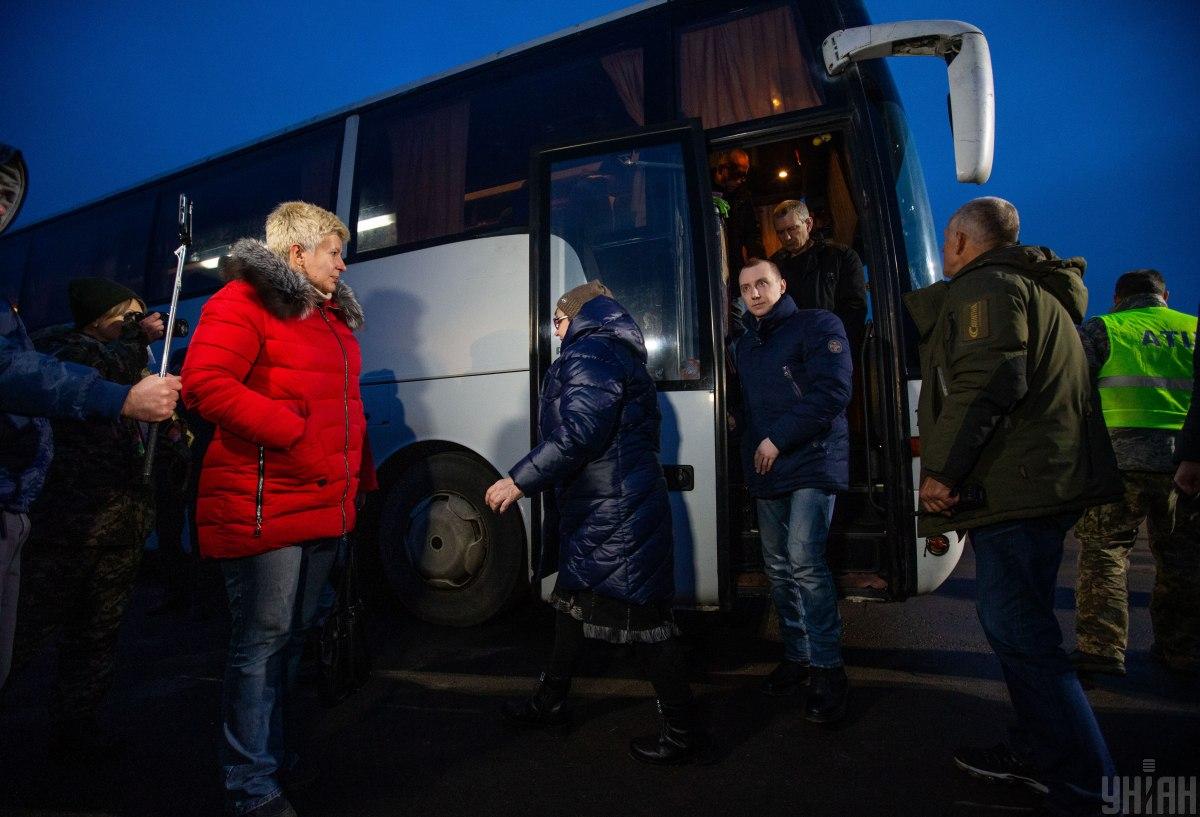
I clearly remember my first week when I got to Kyiv and just went down to the subway. I looked at the people around and the first thing that caught my eye was the complete absence of war. No war at all. In Kyiv, life is absolutely peaceful, and people are concerned about whole different issues. Are these people even aware of what is happening right now in Donetsk? After all, Isolation hasn't gone anywhere, people are still being held there in the cellars. They torture people there. Here you see a completely peaceful city, which lives its own, sort of separate, life. The war only exists in the information space and in the families of those who came into direct contact with it.
I've also become exactly the same now. I no longer feel anything weird about browsing my Facebook feed on subway or just listening to some music. Maybe this is how things should be. You can't sense war permanently.
Many of those who have gone through war, following some psychological adaptation, come to the conclusion that it's precisely for this that the Army defends the front line: so that people in Kiyv could browse their Facebook, raise their kids, buy diapers, and so on...
I ask myself a question: maybe I think this way because I've already become one of these people who survived this all? But it still seems to me that in the emotional plain or at least in the information field this should be preserved so that people don't forget that nothing is over at all, that the hot phase of this conflict is ongoing. More people are dying. And that, in general, something needs to be done about it.
How long have you been held in a Russian prison?
In Isolation, it was 28 months. The overall time is 31.5 months.
I must say that the Isolation was different in various periods – starting from living conditions and ending with the attitude towards prisoners. While the so-called "Palych" was an administration chief, there was real hell, without exaggeration. Hell for all. Things happening there were beyond common sense. In February 2018, this administration chief was also thrown behind bars. After that, the attitude towards inmates became much more loyal, although acts of torture were still in place.
Mostly, it was new arrivals who were subjected to torture. That is, someone is brought from the "Ministry of State Security" in the center of Donetsk down the cellars to beat testimony out of them. If they are satisfied with the result, the person is put in a cell. During Palych's rule though, it didn't matter if inmates signed any papers or not. They would be constantly humiliated throughout their term there. It doesn't if you're pro-Ukrainian, if you're part of the so-called "militia” or an operative with the so-called "MGB". Absolutely everyone was broken down there. When the man was dismissed, things became a little lighter. But still, this isn't a place you want to be, that's for sure.
So this means that Russian "defenders" set up a concentration camp for Russian speakers, is that right?
I wouldn't pose the question this way. The people who refer to themselves as administration in Isolation care about nothing. Absolutely nothing. They don't care about ideology or charges. For 28 months, I had cellmates who used to be part of the so-called "militia", the militants. And most of them were tortured even worse than what they called "ukrops" [a derogatory term for Ukrainians]. So, the people were doing this [torture] simply because they could and because they enjoyed it. There's no ideology involved there at all.
So, it figures Russian occupation authorities have appointed people with mental issues to supervise this place?
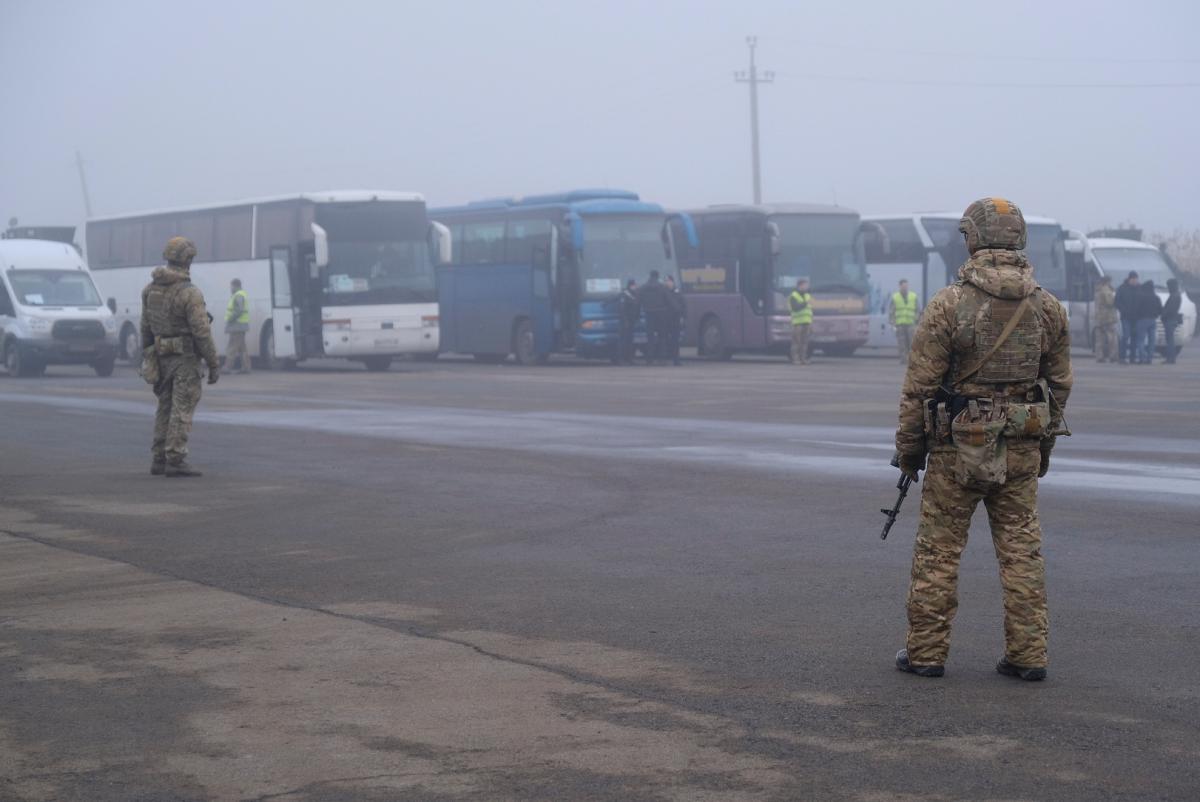
Absolutely. "Palych" is not the only one with some kind of mental pathology. But this guy is a classic psychopath, a sadist who feels no empathy for other people. That is why he behaved the way he behaved. Torturing other people without any "operational necessity" (as they called it) for years was something only people with serious mental issues could do.
Will you call out in your book any names of people who committed these crimes?
None. Firstly, it's our security agencies who deal with the names of those managing the Isolation, so they are aware of those names. Secondly, there'll be no names of inmates in this book. This is about ethics so I won't cross those lines. If a woman got raped, and write about that case, I will not give you her name.
As for the administration, even if I mentioned their callsigns or names, it would a gift for them. They don't give a damn about the book, they don't give a damn about international reports drawn by the UN or OSCE. They just laugh out loud and say they are now part of history books. I don't even mention their callsigns, on principle, with the exception of this "Palych" guy. Without mentioning him, it would be impossible to describe Isolation. He was the central core of this whole system. This is someone who could be a case study for a PhD dissertation in psychiatry.
Russian occupation authorities are certainly aware of what's going on there...
Oh, they are, for sure. Both the "MGB" and the FSB, the agency handling them ... In the end, it's been six years since the UN started compiling reports on rights violation in that territory. The latest report of 2019 also specifically spelled out the word "Isolation". I personally spoke with the High Commissioner for Human Rights, telling about this place.
Everyone knows everything, but nothing changes. Moreover, I told our president about this place, too, when we met. To which Volodymyr Oleksandrovych [Zelensky] asked a question – that is absolutely logical, but I didn't expect him to ask me it. So he asked: "What will we offer the Russians to change the situation for the people being held there?" This is absolutely right. See, the phrase "Moscow doesn't believe in tears" applies to this situation, too. Neither our emotions, nor tears, nor cries about people being tortured there will cause no slightest shifts whatsoever. We must deliver concrete arguments.
"You must dismantle the Isolation and punish those people because..." You need to find those arguments.
And I do realize that in this case, we have nothing to offer. This is a problem not only for Zelensky, it was a problem for the Poroshenko administration as well. I don't even know at what level the issue needs to be raised, perhaps personally with Putin. I don't know.
You can demand as much as you want from Ukrainian authorities to resolve the issue, but, in fact, our fellow citizens are held captive by President of Russia, who could just utter a word to resolve the problem, but he doesn't seem to be willing to do this.
That's right. Regarding Isolation, on the part of our diplomacy, I would insist on separate sanctions against the Russian Federation, precisely over the very existence of this place. That's because it is a modern-day concentration camp. By the way, since the summer of 2017, in some cells in Isolation, ACs have been installed. Those who first hear about this place will be surprised at how the term "concentration camp" can be put in the same sentence with "air conditioning". However, the conditions in cells have nothing to do with the horrors happening there. They installed ACs but nothing has changed. People are still being kicked until they shove themselves under the bunks, they are still being forced to bark as dogs from under those bunks, women are still getting badly beaten up and raped... But they did install ACs, yes.
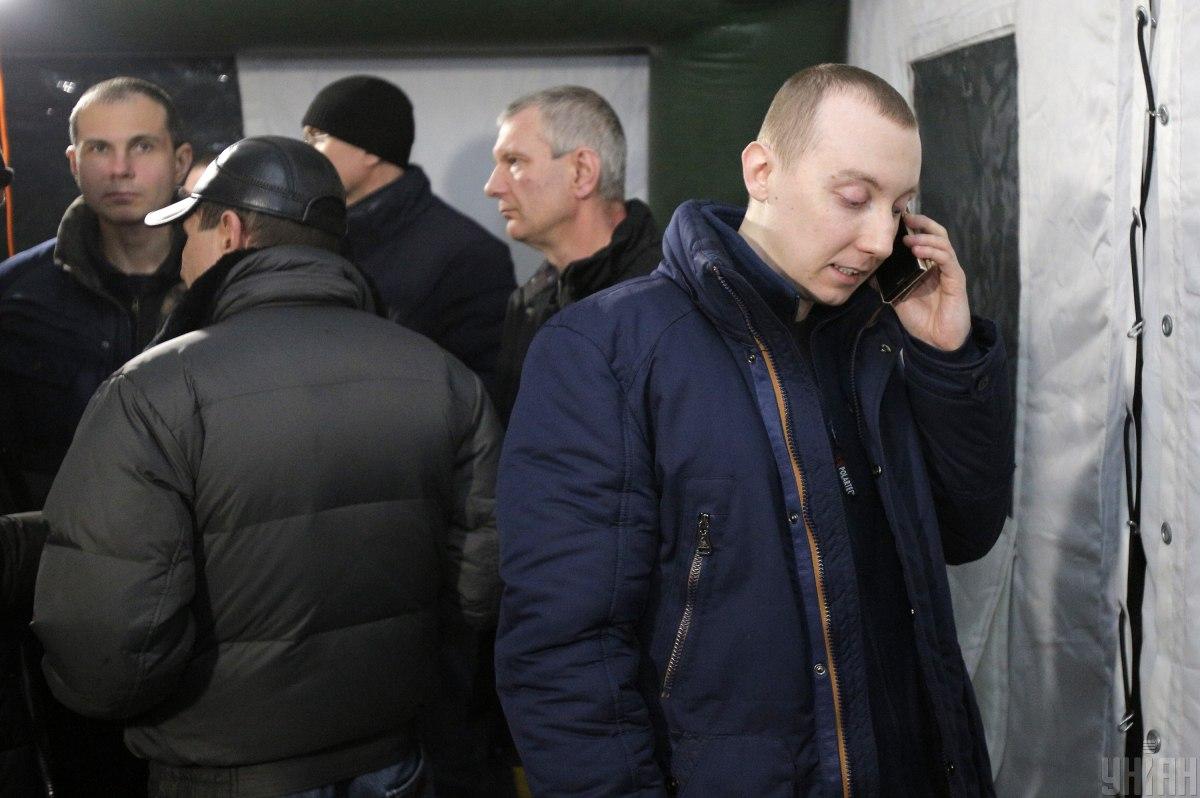
From time to time I talk to people who represent the so-called political part of the occupation authorities. All have been living in Moscow after they "liberated" Donetsk and Luhansk from Ukraine. For some reason, they didn't want to stay there. I always tell them that they created a "military dictatorship" where people have no rights ... Am I right?
Military dictatorship was in place during Zakharchenko rule. For some time since 2014, yes, I'd label it this way. But now, I would call it a criminal enclave, which is simply supervised by Russian special services. It's not so much the military but security services that are now playing a major role there.
In 2017, a turning point occurred. I saw this in some of my cellmates in Isolation. There were waves of new inmates from among commanders of these so-called "brigades", as well as their subordinates. Those who remained since 2014 with at least some political agenda in their mind were simply broken down in prison cellars and thrown behind bars to us. This was done in order to remove all "respectable" field commanders who could object orders or represent some threat. All they wanted was to calmly manage the situation through special services, in manual mode.
That Girkin warlord was once directly asked why he is not returning to Donetsk. To which he replied: "Return where? To a prison basement?" He is absolutely right. He, too, would be locked up in a basement. Of course, it is more convenient to live a free life in Moscow.
What policy should Ukraine pursue in relation to the occupied territories of Donbas?
Not long ago, Deputy Prime Minister [Oleksiy] Reznikov asked me the same question. We talked with him about my potential participation in the TCG. I believe that in today's political realities this conflict should be frozen until a real political solution is offered by Moscow. The fact that our government is trying to hold elections in that territory is very strange. I won't even discuss any technical issues related to the organization of the campaign. I actually have a fear that the Russians may agree to this idea, God forbid. They still don't understand how much harm they will inflict on Ukraine if they agree to these elections, rather than postpone them every time. It is impossible to take this territory in its current form, even if Russia withdraws its troops for the sake of this vote.
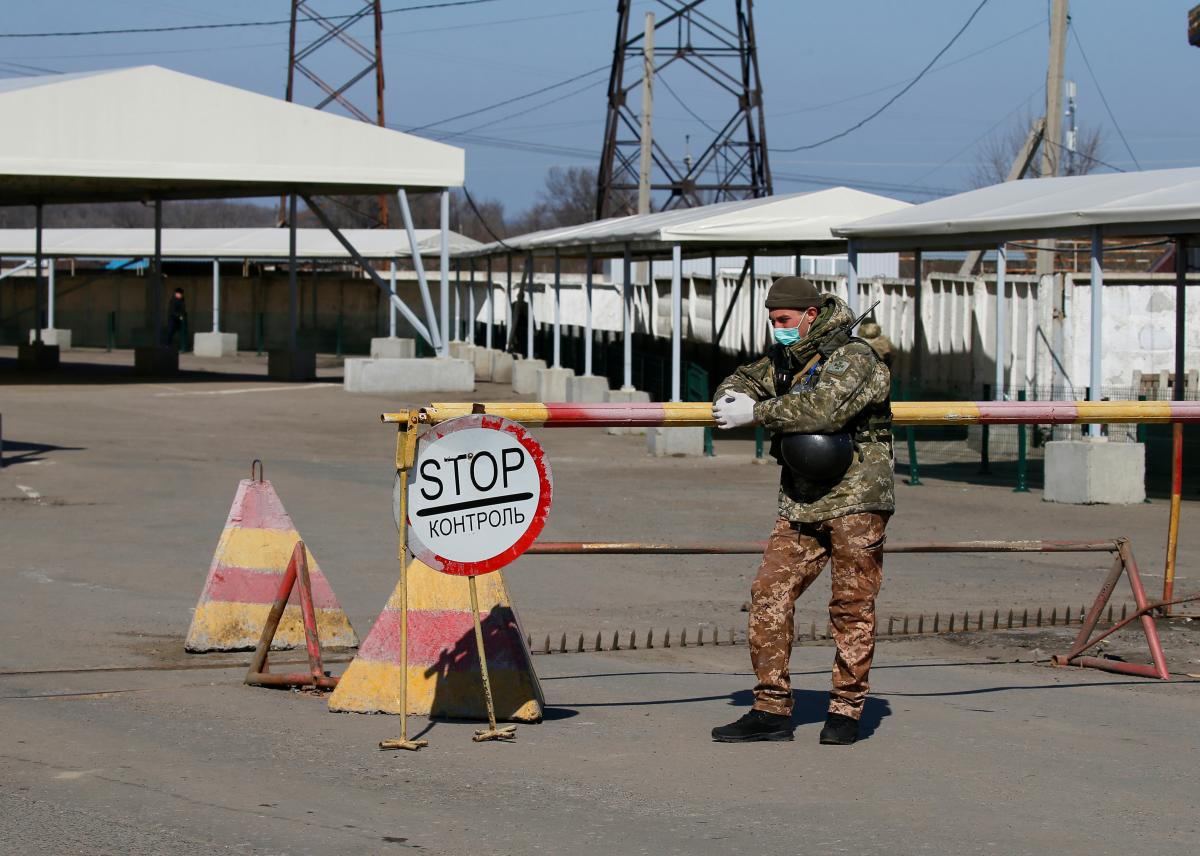
We need to understand what's happened there over the past six years, and what will happen if they flow into our national bloodstream without any reintegration program, which our government is lacking. After all, a whole new generation has been raised there, who have been brainwashed from the first grade of school, and to the university. We need to have an understanding, what we are to do with the tens of thousands of combatants who were part of armed groups or occupation administrations...
There are so many questions that are yet to be addressed… If we just allow this election now, it will be a global problem for our country. I don't understand at all the zeal on the part of the President’s Office to hold elections at any cost in the coming months. Actually, this was one of the reasons why I turned down the offer to work as part of the TCG.
Russia demands political concessions in exchange for people. At the same time, none of those political concessions bring the reintegration of our territory closer, only exacerbating the political situation in Kyiv. We have nothing to offer them...
That's right. Therefore, I said that, if Mr. President has Plan B, he should have started implementing it yesterday. We're just wasting time.
Zelensky is obviously a hostage of his position, of his own campaign promises...
It's hard to say. I get the impression that he is a hostage of some of his personal relationships with Petro Poroshenko. He wants to end this war so bad because Poroshenko failed to do it but in the end we can get the result which will be even worse than what we're having today. After meeting with president, I can say that personally, as a person, not as a politician, he really wants to end this war. But you need to build your efforts on facts, not emotions.
The situation is such that today we cannot play it in our favor – so we must think about another option, which isn't an easy one, either. Even if there is Plan "B", the conflict freezing option, it also needs to be well thought out. As soon as we say that we are turning down a political resolution, the humanitarian sphere will immediately shut down. Russians don't care about people living there. They are interested in them only in the context of political concessions. If they understand that we are not going to deliver any, the issue of being released will be off the table for our people there.
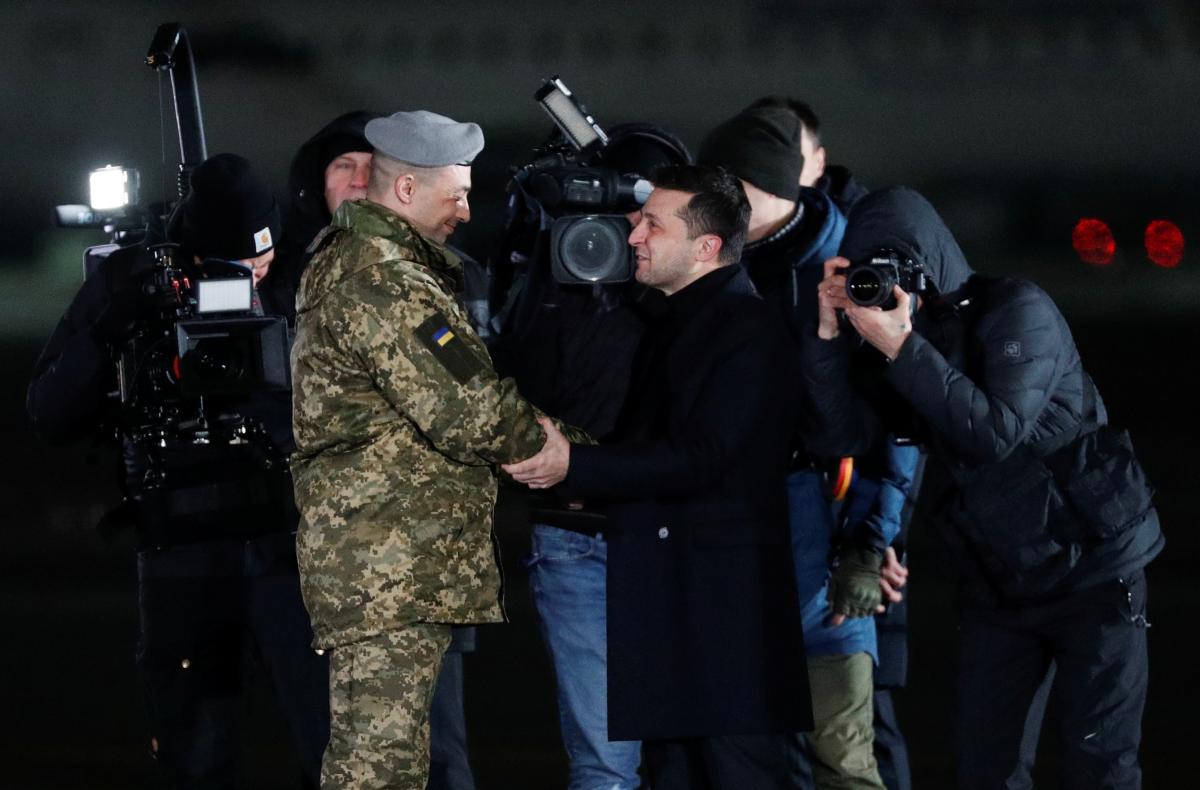
The second point, which is inevitable, is the escalation at the front line. We must address this, today.
And the third thing, which, from my perspective, should be done is the removal of all combatants to Russia ahead of the elections. No reintegration and pardon campaigns will help avoid a colossal conflict in this territory. No one has forgotten anything, and no one will forgive anything. Imagine people who have lost their sons returning to that territory and seeing those who took their loved ones' lives. We will have problems.
Besides, most combatants acquired Russian passports. Operatives with the so-called "MGB" and their families were required to obtain Russian passports so that, if any political decision is made, if control of the border is handed back to Ukraine, they could be allowed to flee to Russia.
You need to understand: these people fought for Russia. Everyone who believes that Ukraine is to blame for this conflict is looking towards Russia, not towards the so-called "LPR/DPR".
In one of your statements, I heard that Donbas is not about ideology, but rather about social assistance concerns. Now it turns out that those who called Russia to come save them didn't get exactly what they expected, did they?
This is a very broad question. Before this war, I myself was a classic example of "Russian-world" way of thinking. I have never supported these so-called "republics". Therefore, as soon as it all broke out, even for me, a man who was brought up on certain Russian values, things I saw at a rally on March 1, 2014, were unacceptable. Before that, my set of ideas was something like this: Putin is a brilliant politician; Russia is a special country with a special spiritual mission, which is about opposing itself to the collective West; there is a special role played by the Russian language, and even Orthodoxy, and so on. This is a whole set of these theoretical things that I have absorbed throughout those years I've lived in Donbas. And only war made me reconsider all this. And then, it took me another year, throughout 2014, to see what the "Russian world" is in practice: when gangs of drunk Cossacks appeared, compiled including from among my backyard friends, who controlled roadblocks in Makiyivka and just rob all passing drivers y in favor of the "DPR" ...
I can tell a lot, but the point is that it's the events, the reality, real life, that force us to radically rethink all these things and make a U-turn. When I got locked up in that basement – after having worked on this topic professionally for two years as a journalist – I realized that I couldn't even imagine the scale of what was happening. That there is a whole underground world that no one is aware of at all. No one, even those people who believe in Russia and perceive Mr. Putin as a demigod.
This is all to prove the point that, even if we return to this territory tomorrow, neither a Ukrainian 1+1 TV channel, nor radio broadcasting will force these people to reconsider their values if this hasn't happened yet over these six years. This will be a problem we will face. We won't be able to convince them solely through media influence.
Naturally, they are disappointed that they didn't become part of the Russian Federation. In this regard, they are all embittered and disappointed. But this doesn't somehow add any love to Ukraine. So we shouldn't have any illusions in this regard.
We started our conversation with your impressions of a free Ukraine, where people live an absolutely relaxed life. What needs to be said and done so that people don't vote for parties and politicians calling the "Russian world" to come to Ukraine?
I'm deeply skeptical in this regard. I don't think that there is any kind of information connection, an information bridge between what we see the "Russian world" is and the choice voters make. Those who want to be aware about it, they already know. Let's go from the opposite side: those beyond the line of demarcation are subject to propaganda, not just because they want to hear what Solovyov or Kiselyov [propaganda masterminds] broadcast. It is the same in our territory: if someone hasn't developed their own quality attitude to this conflict over the past six years, and if they don't consider it a part of their life, then no matter how much we talk about the horrors of what's happening there, this won't work.
When my book comes out, it will only be read by those who want to learn about these things. And no matter how much you tell how terrible it is and how people are tortured there, many simply shrug this off, saying: "I have a family and I need to take my little daughter to kindergarten, so why do I have to learn about this all?" Often these words are uttered by IDPs who were forced to flee the warzone with nothing, amid shelling in 2014. They can rightly say: "I don't want to recall this anymore, I barely set my life back on track here from scratch, I had nowhere to live, and you come and tell me again about that torture? I don't want to hear anything about it."
But we have to do our job. I can do what I can do: I write and tell people about it. But whether they hear me out or not is another question.
What tools could be applied to have our prisoners of war released?
First of all, it's international pressure at all levels. At the diplomacy level, at the family level of these prisoners. And by the way, now these people have become quite pro-active and rallied, they have visited many foreign embassies. The second point, I repeat, we need concrete arguments – in the shape of such people as Vladimir Tsemakh [an important MH17 suspect]. When such people appear, when brilliant special operations take place and Russia's image is at stake, then something can be resolved. It is absolutely pointless though to appeal to emotions, justice or mercy on the part of the Russian Federation. Russia is a mechanism that works against us every day, without any emotion.
Of course, we must pay close attention to the SBU itself. The example of the recent arrest of [high-profile mole] General Shaitanov is only the tip of the iceberg. This system also requires complete reform, including with the involvement of Western experts. And as soon as this happens, believe me, we will also have arguments for an exchange.
Are you talking about an "exchange fund"?
I do. Everything else is completely pointless. Of course, there is another option – political concessions for which they would hand some people back to us, definitely. I don't know what to do here, I'm no adviser. I myself don't know how I would answer this question if I were asked while I was in captivity. When you are sitting in Kyiv in your comfy chair, the answer seems obvious, and this answer is "no". But when you're held in Isolation and things happening around you are hard to imagine, answering "no" doesn't seem unambiguous. It's the president, of course, who must answer this question.
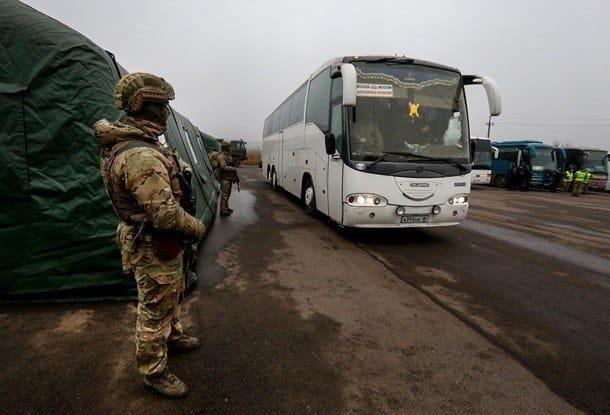
In any case, political preferences on our part are the only thing that's of interest to Russia. They aren't interested in anything else, including people that we're holding behind bars. Even their prisoners of war is not a No 1 issue for them.
In the exchange effort you were part of there were people whom you could hardly call Ukrainian patriots — these were people who were engaged in torture, served as part of Russian occupation administrations, there were criminals. At the same time, some Ukrainian military and civilians, who had been defending our country, remained in captivity. Can you explain how this happened?
There are several options. I understand that these types of people are included in the lists for money. They pay Morozova, the so-called ombudswoman, and she insists that if you want to take back someone, you must also agree to take these, too. When our special services look at them and say that they, say, are outright criminals, or fought on the Russian side, the answer is simple: we don't care. Take them, or there will be no exchange.
On the other hand, I understand that it is unlikely that [head of Zelensky's office Andriy] Yermak or, say, even Mr. President reads these lists and understands who they are talking about.
I said that I fundamentally disagree with the approach to the exchange processes applied by the Presidential Office. There are three specific criteria. Firstly, the feats – this means, our prisoners of war, members of sabotage group sand undercover human asset networks. The second criterion is the state of health of a prisoner. And the third is the time they have already done in prison. See, spending 2.5 or 3 years in Isolation, leaving most of your physical and mental health there, is not the same as spending 3 to 4 months in a pre-trial detention center.
But none of this matters because we simply have no arguments at all to ensure the release of our people. There are military men there, of whom we can't even publicly speak of, but they have done so much for our country, working in different areas – both sabotage and clandestine activity. Well, we can't even put out their names on promotion banners due to their specific CVs. But are still being held there. On the other hand, some bastards are being released, yes. Including, in the exchange effort I was part of. It remains only to shrug.
The authorities explained this by saying that those people are all Ukrainians... Although it seems more like the "what difference does it make" approach...
The "they are all Ukrainians" formula is absurd. What about those we're handing to the other side? They are Ukrainians, too. They also have Ukrainian passports. But in this case, they are criminals whom we are swapping. This is absurd. But I understand where it comes from.
I don't think that the president doesn't realize that we cannot influence the situation qualitatively and force Moscow to hand back precisely those who deserve the title of hero of Ukraine. Well, we have no arguments to this end. Therefore, naturally, he selects some political formulations in order to at least somehow explain the process. He cannot say this directly because he is president, but I can afford doing it because I am a regular citizen.
There are famous prisoners of war, and some people remain unknown. If they talk a lot about someone, that person gains "political weight", and the Russians are in no hurry to give them away. What tactics are better: to go through public outcry or retain some people's low profile?
This is another issue which the President's Office emphasizes, claiming that when prisoners' relatives call their names, they allegedly complicate the efforts toward their release. In the first month, when a person gets into this situation, you should not go shouting about this right away, because there is a small chance that somehow they will pull him out of there anyway. But when someone was not on the list for the third time in a row and is now on the verge of suicide, when they write to their father or mother that they don't know where to take strength from anymore, it is absurd to write in response: "Son, I won't bring up your name anywhere because they told me it's dangerous." Of course, their names must be voiced, the more the better.
Roman Tsymbaliuk

